The 2023 Winter Meeting, hosted by Wyoming Gov. Mark Gordon, featured the Western Governors and their special guests in public conversations about the most significant issues facing the region.
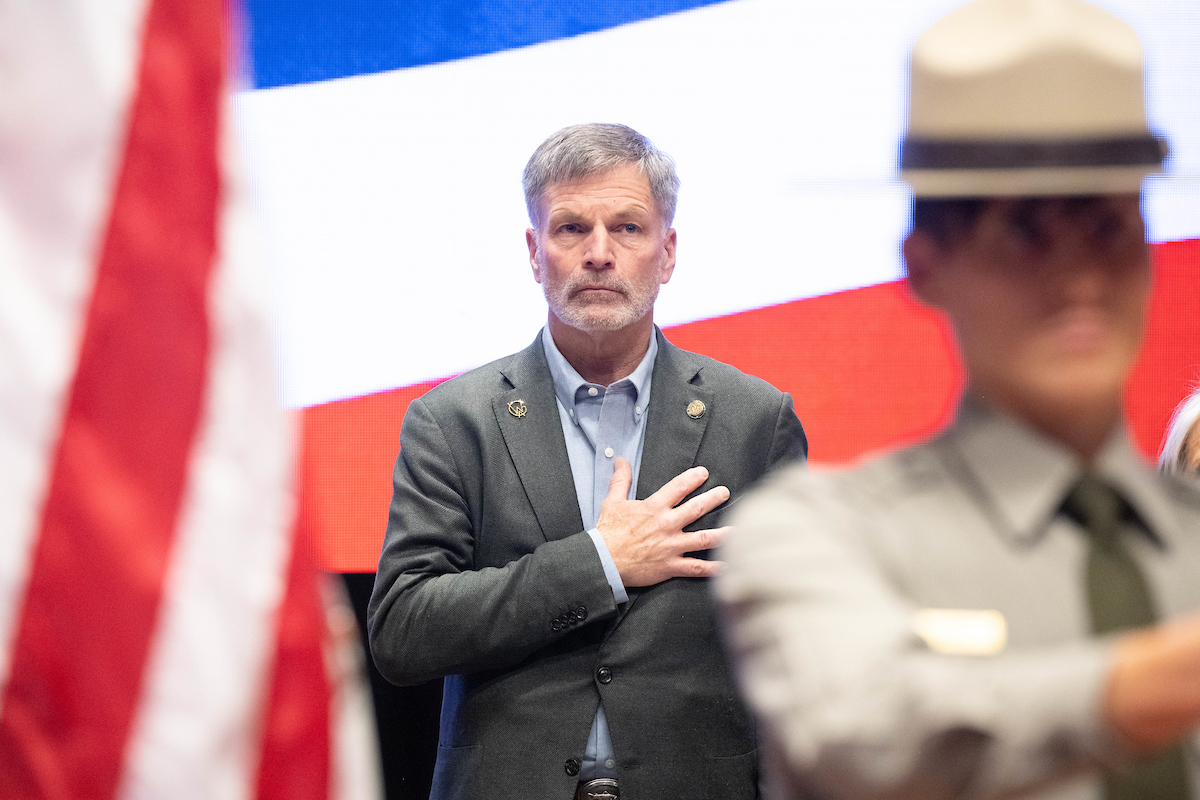 Wyoming Governor Mark Gordon, Chair of the Western Governors’ Association, kicked off the 2023 Winter Meeting by discussing the importance of collaboration when addressing the region’s energy and environmental challenges.
Wyoming Governor Mark Gordon, Chair of the Western Governors’ Association, kicked off the 2023 Winter Meeting by discussing the importance of collaboration when addressing the region’s energy and environmental challenges.
“I want to point out that the majority of minerals in the nation, most of the energy, many of the water issues, and many of the natural resource issues are represented on this panel of governors,” Wyoming Governor Mark Gordon told the crowd at Walk Festival Hall in Jackson Hole, Wyoming. “It has been my distinct honor to work with each of them and to collaborate on really useful solutions that make a difference for our country… If we can continue our work together, there is a lot we can accomplish.”
Governor Gordon and his gubernatorial colleagues, WGA’s Vice Chair, Michelle Lujan Grisham, Katie Hobbs, Jared Polis, Brad Little, Joe Lombardo, and Spencer Cox, expanded upon the need for continued collaboration, along with their partners in the Federal Government, in a conversation with U.S. Secretary of the Interior Deb Haaland and the Director of the U.S. Office of Management and Budget, Shalanda Young.
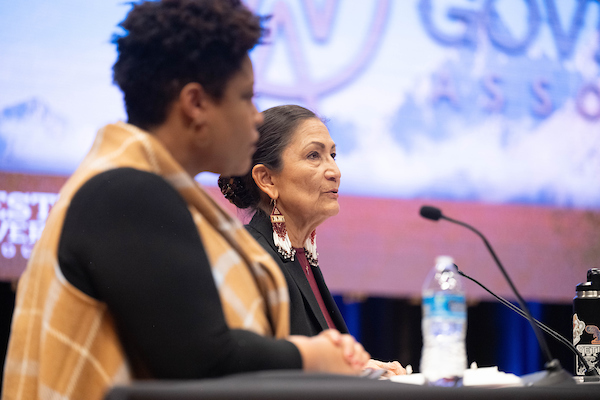 “The challenges we face are real, but the solutions we're creating together are bringing us closer to the future our communities deserve,” Secretary Haaland said. “Whether it's the rapid deployment of the technologies we need to decarbonize the West, or collaboration to protect the lands, waters, and wildlife we all cherish, the West has undeniable potential. It's this potential we must harness for the bold change we need, but the progress we make will ultimately rely on ongoing partnerships in the states represented here today.”
“The challenges we face are real, but the solutions we're creating together are bringing us closer to the future our communities deserve,” Secretary Haaland said. “Whether it's the rapid deployment of the technologies we need to decarbonize the West, or collaboration to protect the lands, waters, and wildlife we all cherish, the West has undeniable potential. It's this potential we must harness for the bold change we need, but the progress we make will ultimately rely on ongoing partnerships in the states represented here today.”
This theme of cooperation was explored further in two panel discussions that were focused on efforts to decarbonize the region and mitigate wildfire risk.
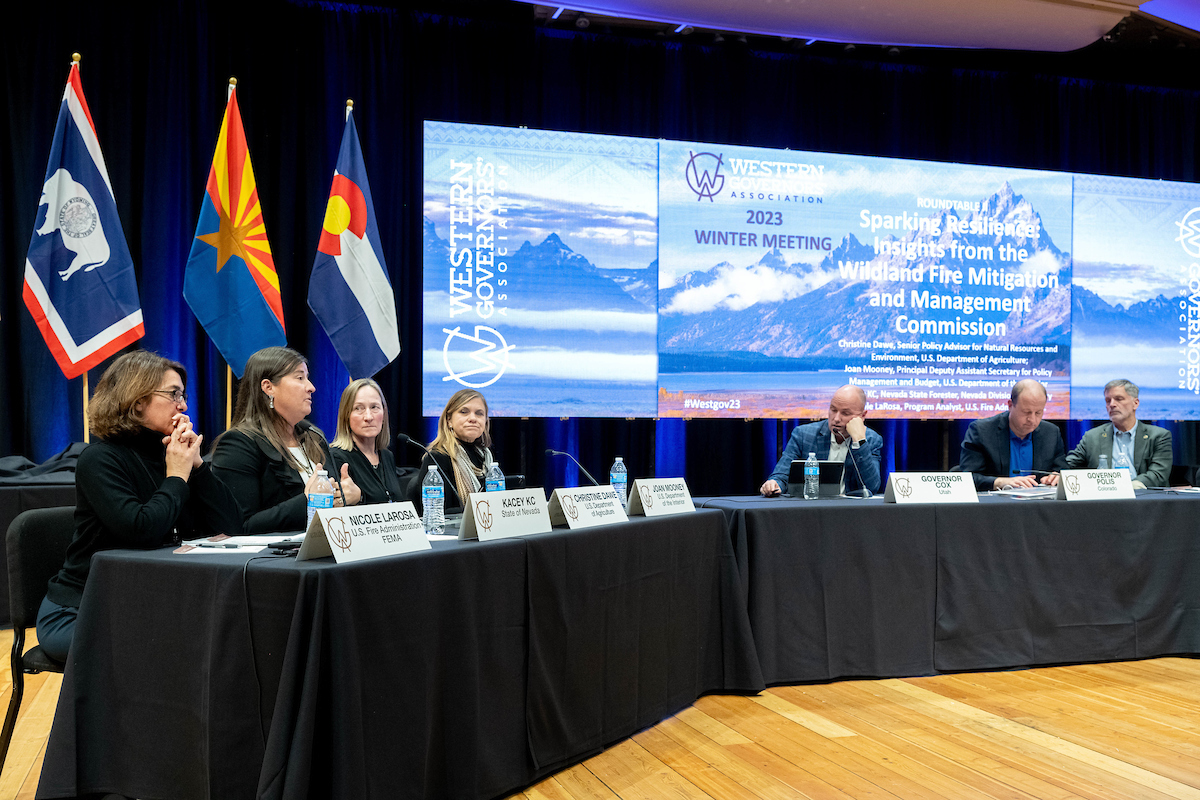 “There was broad agreement that federal agencies alone should not, in fact, cannot effectively address a challenge of this magnitude,” Joan Mooney, the Principal Deputy Assistant Secretary for Policy Management and Budget at the U.S. Department of the Interior, said when speaking about the policy recommendations laid out in the final report of the Wildland Fire Mitigation and Management Commission. “It will take collaboration for us to meet this moment.”
“There was broad agreement that federal agencies alone should not, in fact, cannot effectively address a challenge of this magnitude,” Joan Mooney, the Principal Deputy Assistant Secretary for Policy Management and Budget at the U.S. Department of the Interior, said when speaking about the policy recommendations laid out in the final report of the Wildland Fire Mitigation and Management Commission. “It will take collaboration for us to meet this moment.”
Day Two of WGA’s 2023 Winter Meeting focused on land management issues.
U.S. Secretary of Agriculture Tom Vilsack opened the day’s sessions by providing an in-depth keynote presentation about the threats the agriculture industry faces and outlined innovative strategies for supporting farming and ranching in rural communities.
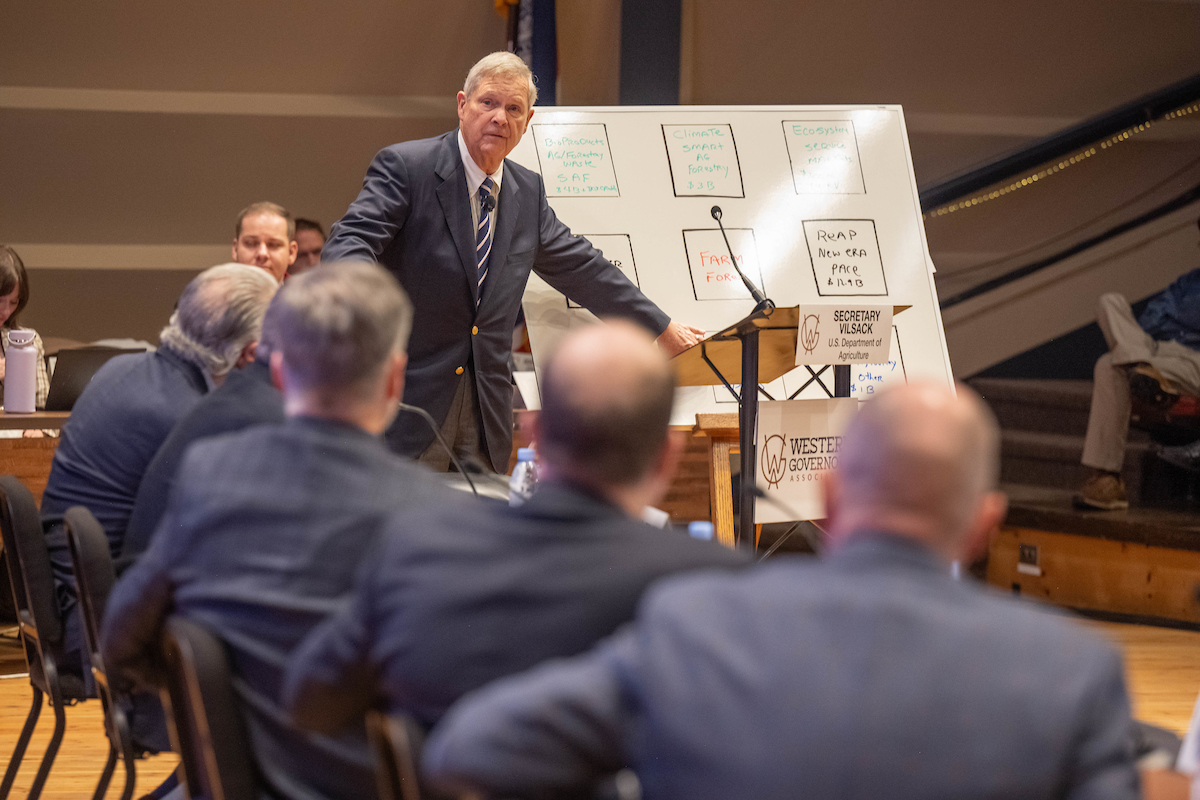 “Are we okay with losing 141 million acres of farmland? Are we okay with heavy concentration of farm income?” Secretary Vilsack asked rhetorically. “If we are, we need to say that, and we need to make sure that people understand the consequences of shrinking rural communities and the significant role that they play in life and the values of this country.”
“Are we okay with losing 141 million acres of farmland? Are we okay with heavy concentration of farm income?” Secretary Vilsack asked rhetorically. “If we are, we need to say that, and we need to make sure that people understand the consequences of shrinking rural communities and the significant role that they play in life and the values of this country.”
To reverse this trend, Secretary Vilsack outlined a three-pronged approach: incentivize climate-smart agriculture – including converting agricultural waste and crop residue into bioproducts like sustainable aviation fuel – reduce the cost of operations, and invest in local and regional food systems to create more opportunities for farmers to be able to negotiate the price of their products, as opposed to having it fixed by a global market.
Vilsack's keynote was followed by a roundtable discussion that examined how technology and controlled environment agriculture can support Secretary Vilsack’s vision by significantly increasing yields and improving the quality of produce while reducing water usage.
“Farmers have always selected plants for the environment, but now we can select the environment,” Dr. Sasha Preuss, the Vice President of Plant Science at Plenty, said. “We're at the dawn of this industry and we're going to be able to push down the costs.”
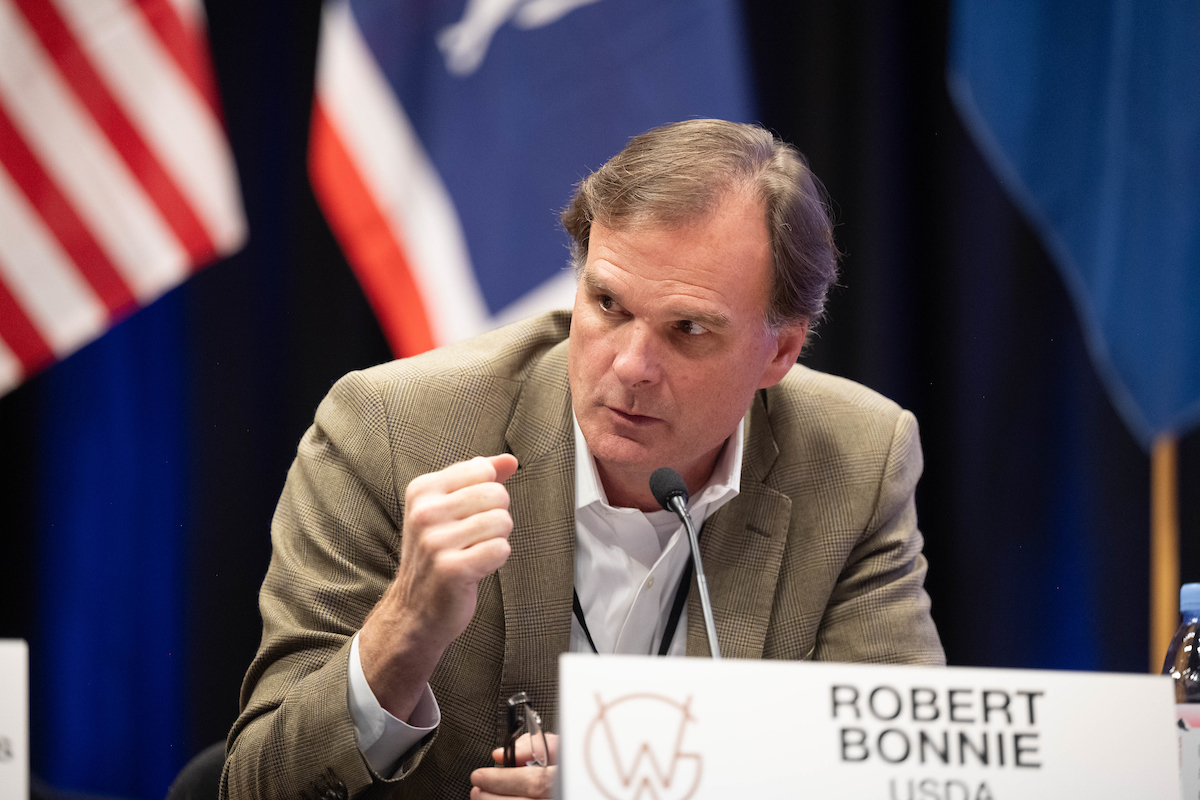 “If we can work collaboratively with agriculture, if we can create incentives and the types of markets that the Secretary talked about, and make it profitable for US farmers to not only continue to produce but do it in a way more efficient way, U. S. Agriculture is going to be really good and a really important force in addressing climate change,” Robert Bonnie, the Under Secretary for Farm Production and Conservation at the U.S. Department of Agriculture, told the Governors. “There's no doubt about that.”
“If we can work collaboratively with agriculture, if we can create incentives and the types of markets that the Secretary talked about, and make it profitable for US farmers to not only continue to produce but do it in a way more efficient way, U. S. Agriculture is going to be really good and a really important force in addressing climate change,” Robert Bonnie, the Under Secretary for Farm Production and Conservation at the U.S. Department of Agriculture, told the Governors. “There's no doubt about that.”
The final panel of the day shifted the focus from agriculture to public lands management and the West’s National Parks.
Cam Sholly, the Superintendent of Yellowstone National Park, and Chip Jenkins, the Superintendent of Grand Teton National Park, spoke about the need to partner more closely with states to help mitigate the costs of services and labor, which proved successful during the COVID-19 pandemic and following the historic flooding in Yellowstone during the summer of 2022.
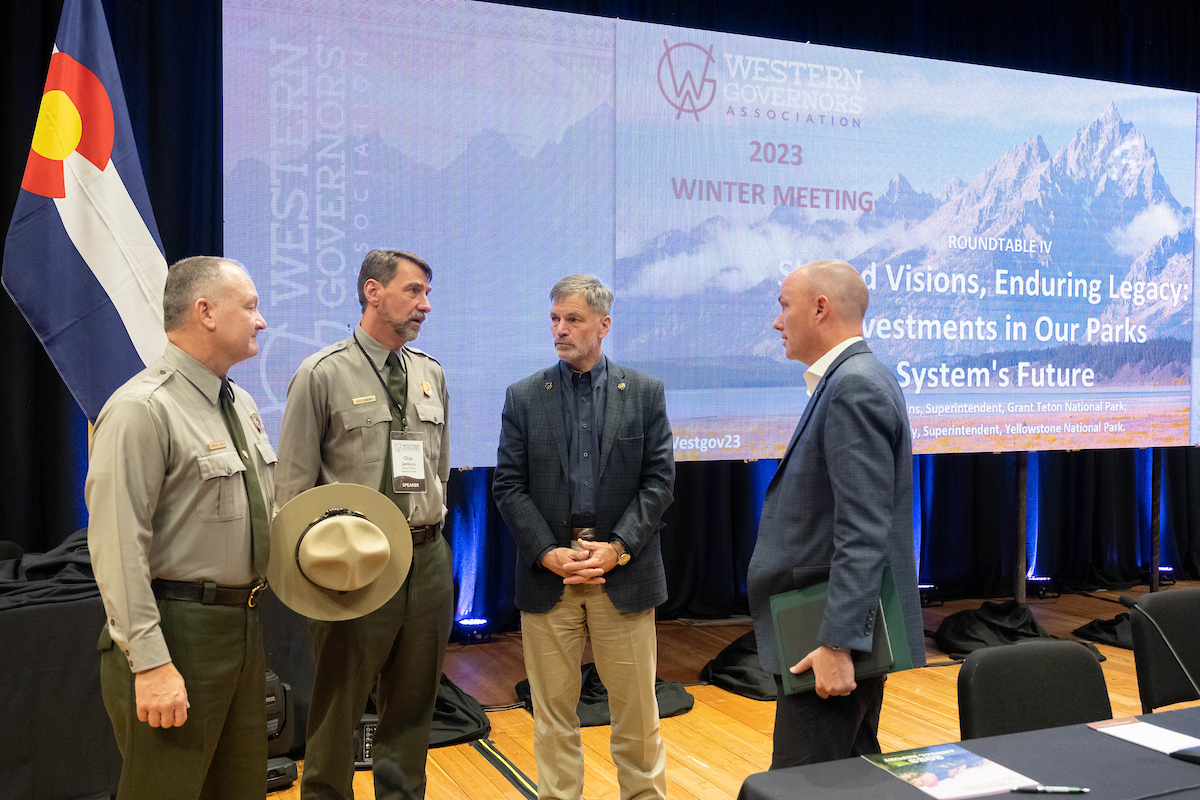 “Each individual park is operated in a complex landscape of relationships with states, counties, local communities, other agencies,” Jenkins told the Governors. “The Western Governors Association has brought attention to the Partnership Agreements Creating Tangible Savings Act, or the PACS Act… that would enable the Park Service to join in agreements with state and local governments and quasi-governmental agencies to improve the management of recreation areas on federal lands.”
“Each individual park is operated in a complex landscape of relationships with states, counties, local communities, other agencies,” Jenkins told the Governors. “The Western Governors Association has brought attention to the Partnership Agreements Creating Tangible Savings Act, or the PACS Act… that would enable the Park Service to join in agreements with state and local governments and quasi-governmental agencies to improve the management of recreation areas on federal lands.”
Day Three of the Winter Meeting explored ways the states can work with the federal government to reform education systems, wildfire corridors, and the permitting process for transmission lines.
“If we aren’t willing to take on controversial and provocative ideas,” Governor Lujan Grisham said, “we won’t find any solutions.”
The meeting’s final keynote presentation featured U.S. Secretary of Education Miguel Cardona, who spoke with the Governors about the opportunity to reimagine education in the post-pandemic world by providing students with more career options and reducing the cost of higher education.
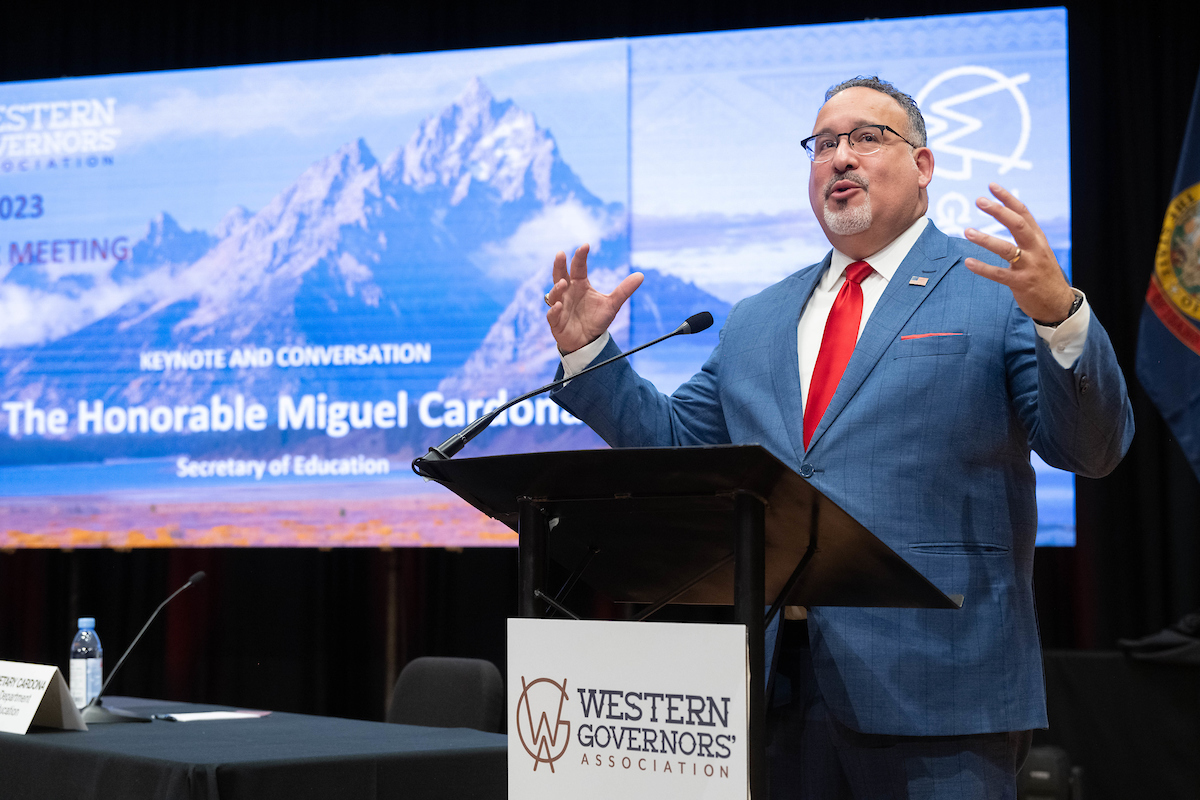 “As a father, I can tell you, too, I was a little bit dismayed that the schools went back to how they were before the pandemic,” Secretary Cardona said. “We have an opportunity to embrace that disruption, to evolve our schools, to give our students workforce exposure, to give them internship or externship opportunities. Yet went back to the rows and systems that we had in our schools two pandemics ago… Let's work together to unleash the God-given potential in our children, and let's raise the bar together in education. Our young people are ready. Are the systems that we lead ready?”
“As a father, I can tell you, too, I was a little bit dismayed that the schools went back to how they were before the pandemic,” Secretary Cardona said. “We have an opportunity to embrace that disruption, to evolve our schools, to give our students workforce exposure, to give them internship or externship opportunities. Yet went back to the rows and systems that we had in our schools two pandemics ago… Let's work together to unleash the God-given potential in our children, and let's raise the bar together in education. Our young people are ready. Are the systems that we lead ready?”
Panelists on the Connecting the West: Wildlife Migration Corridors roundtable also spoke of the need to embrace new technologies and science to reduce wildlife collisions.
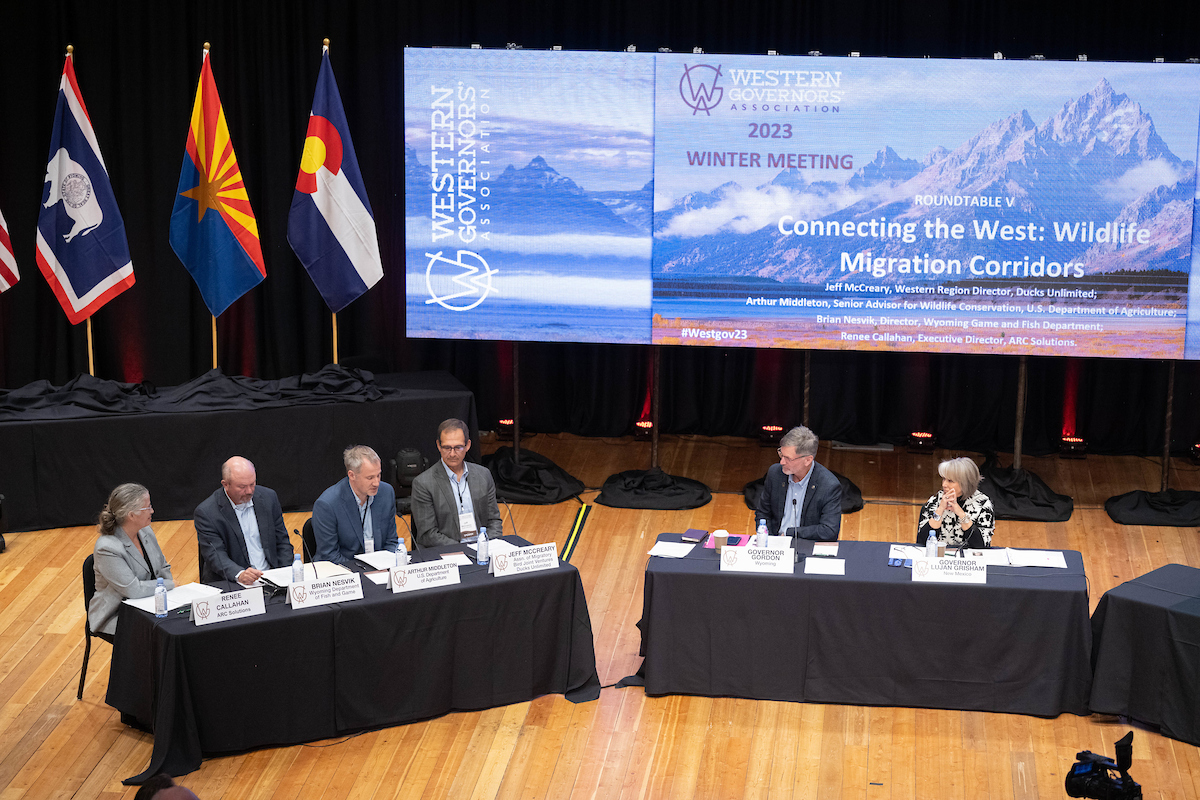 “Highways are one of the greatest barriers to wildlife movement and migration,” Renee Callahan, the Executive Director of ARC Solutions, said. “Today, in the U.S. alone, drivers are going to travel about eight billion miles in their cars. During their travels, motorists will hit and kill a large animal at least once every 26 seconds… That’s the bad news. The good news is there are proven solutions. We have the science. We have the data. Unlike so many issues we face today, we actually know how to solve this problem right now.”
“Highways are one of the greatest barriers to wildlife movement and migration,” Renee Callahan, the Executive Director of ARC Solutions, said. “Today, in the U.S. alone, drivers are going to travel about eight billion miles in their cars. During their travels, motorists will hit and kill a large animal at least once every 26 seconds… That’s the bad news. The good news is there are proven solutions. We have the science. We have the data. Unlike so many issues we face today, we actually know how to solve this problem right now.”
A part of the solution, Jeff McCreary, the Western Region Director for Ducks Unlimited, said will be to engage farmers and ranchers to provide for wildlife corridors on their land.
“We’re trying to create a paradigm shift,” he said. “There are only so many public land spaces out there that can be managed, but there's all this working land… How are we demonstrating that farmers and ranchers and working lands are part of the solution and not a target to be pointed at and aimed at?”
Governor Gordon and Governor Lujan Grisham also spoke with the audience about how National Environmental Policy Act (NEPA) processes can be improved to streamline permitting, especially for much-needed energy transmission lines.
“If we as a country have any hope of achieving a net zero goal, we need massive deployment,” he said, “it won't be achievable if we hold things back."
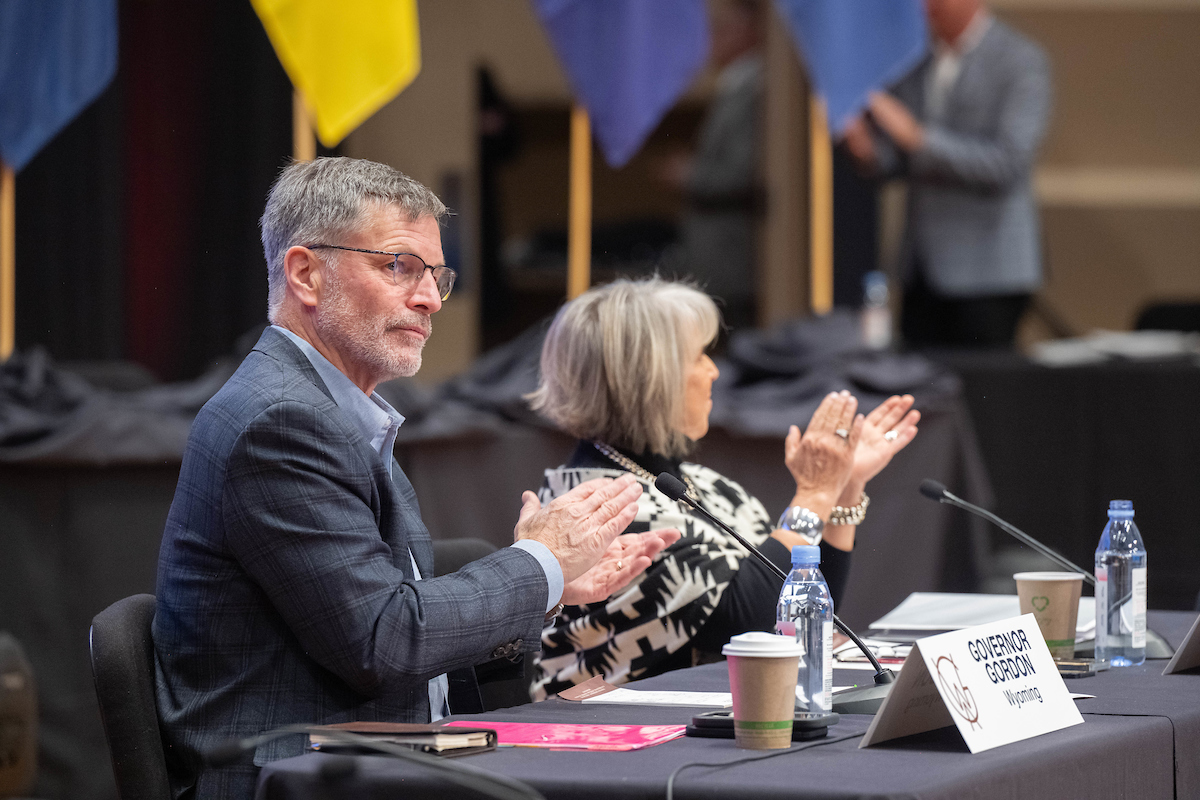 To close out the Winter Meeting, WGA’s Chair and Vice Chair, Governor Gordon and Governor Lujan Grisham, announced that Western Governors approved four bipartisan policy resolutions focused on strengthening the state-federal relationship; improving cross-boundary management of national forests and rangelands; increasing voluntary and proactive species management; and combating the opioid crisis.
To close out the Winter Meeting, WGA’s Chair and Vice Chair, Governor Gordon and Governor Lujan Grisham, announced that Western Governors approved four bipartisan policy resolutions focused on strengthening the state-federal relationship; improving cross-boundary management of national forests and rangelands; increasing voluntary and proactive species management; and combating the opioid crisis.
“What I think is particularly wonderful about Western governors is the fact that we are bipartisan,” Governor Gordon, said. “An organization like WGA is only effective when all of the Governors support the policymaking process that allows our western states to speak with a unified voice on matters of mutual interest and concern.”
Western Governors will next meet at the 2024 Annual Meeting, which is set to take place in the beautiful Olympic Valley of California near Lake Tahoe, on June 10 – 12, 2024.